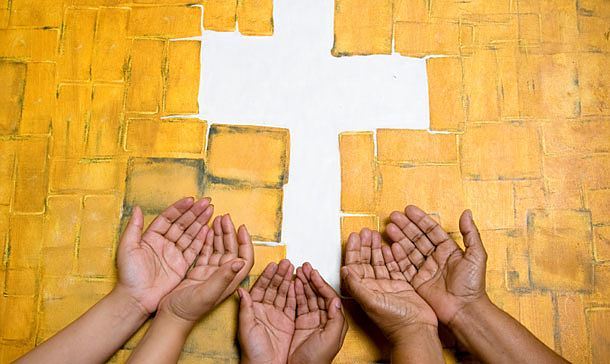March 9, 2009
 Father Thomas A. Ryan, C.S.P.
Father Thomas A. Ryan, C.S.P.Much progress has been made in the work for Christian unity, but new obstacles seem to have stalled the momentum. The longer we are on the ecumenical path, the easier it is to identify the difficulties. But as a Catholic archbishop told the Anglican bishops at their Lambeth Conference last summer, “the path to unity is like a road with no exit,” a road of no turning back. Here, then, are three components for an ecumenical spirituality for the long haul.
Catholics and Orthodox like to underline the real presence, the apostolic succession, the biggest numbers, the longest track record. On the Protestants’ trophy shelf are the primacy of the Word of God, a clear sense of the priesthood of all the baptized, participatory and inclusive forms of church government and equality of ministerial opportunity for women. Instead of defining ourselves primarily in terms of our differences, why don’t we give more emphasis to what we hold in common? In the end, the goal is to see that nothing of what is good, true, and holy is lost.
The Gospel asserts that our real identity is at the center of our faith where we are rooted in Christ and where the bond of the Spirit gives us our essential Christian sameness. On this basis we are in solidarity with all Christians. Baptismal solidarity means desiring to participate in our commonality as fully and deeply as possible.
Hospitality involves being both a good host and a good guest. Being a good host means we have a place in the Christian household where we feel at home, open the door from the inside, welcome others and help them come to a positive appreciation for our own living arrangements. But it also means being a good guest and going to where the other lives. The Greek word for church, ekklesia, comes from two words: ek (out) and kaleo (to call). They indicate that we are “called out” of our familiar and secure places not only to witness, but to grow in our awareness of the positive things the Holy Spirit is up to in other rooms within the household of Christian faith.
True patience is the opposite of passive waiting in which we let things happen and allow others to make the decisions. Patience means entering actively into the thick of life and fully bearing the suffering within and around us. The word patience comes from the Latin verb patior which means “to suffer”. Most people are in favor of Christian unity. Some are even willing to work for it. But few are willing to suffer for it.
Patience is more difficult than either fleeing or fighting, because it goes against the grain of our impulses and involves staying with it, seeing it through, listening carefully to what presents itself to us here and now.
Patience calls for creative waiting, for doing now what we can instead of moaning about what church disciplines will not allow us to do. Biblical patience means overcoming the fear of a controversial subject, paying attention to shameful memories and searching for the healing that comes from understanding and forgiveness.
A continuing commitment to emphasize our solidarity, extend hospitality, and exercise biblical patience is only possible if we are clear that there is no other choice because unity is the will of Jesus Christ for those who follow him.
Make the prayer below part of your daily prayers, and seize upon opportunities to get to know Christians in other churches.
Holy and Eternal Trinity
We pray to you for your Church in the world.
Sanctify its life. Renew its worship.
Make visible its unity. Heal its divisions.
Lead us, with all our brothers and sisters,
towards communion in faith, life, and witness
so that united in the one Body by the one Spirit
we may together witness to the perfect unity of your love.
Father Thomas A. Ryan, C.S.P., directs the Paulist North American Office for Ecumenical and Interfaith Relations in Washington, D.C.
